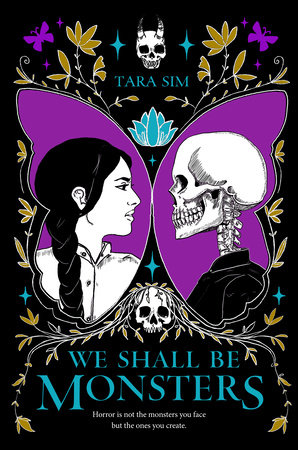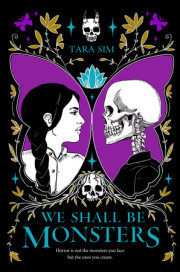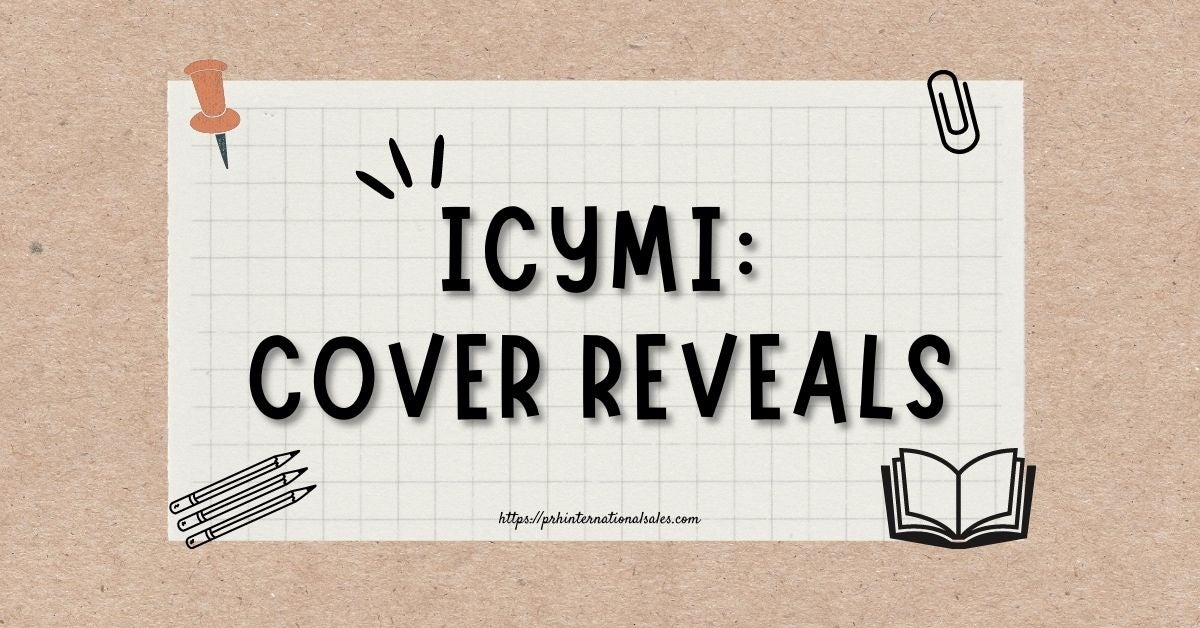Chapter Two Five months laterThe sound of a snapping twig forced her head up.
Kajal was elbow-deep in the dirt, a position she now lamented as she thought of what all could be stalking the countryside at night. Rakshasas and wild animals—and, worse, other people—had proven troublesome in recent months.
Especially as more and more of the Usurper King’s soldiers prowled the roadways.
She strained to hear anything in the darkness. Breathing, rustling, the slide of fur or skin over branches. But there was only the faint breeze through the leaves, her own racing pulse. And a strange odor, like murky, stagnant water.
Keep going, she urged herself.
Kajal flexed her sore fingers and grabbed the end of the burlap sack she’d unearthed. Clouds rolled across the sky, casting shadows over the town and the woodland on its outskirts. Perfect conditions in which to dig up the body.
But she’d forgotten how
heavy it was. When it was halfway exhumed, she sat on her heels to catch her breath and sigh over the state of her hands. She had a tool this time—a small, rusty shovel she’d stolen from one of the local farms—but that hadn’t prevented dirt from digging into every crevice and crease of her brown skin.
She was readying herself for another heave when voices brought her up short, followed by the crunch of boots on detritus.
Who’d be senseless enough to go strolling through the woods at night? she thought. Barring herself, of course.
Kajal searched the trees until she spotted a couple of figures moving amongst the scraggly trunks. A shaft of moonlight broke through the weak edge of a cloud and shone upon the hilts of their swords.
Biting back a curse, Kajal ducked lower. None of the villagers owned swords; these were either strangers passing through or, if she was exceptionally unlucky, soldiers.
She debated slipping away. Her right foot shifted, ready to creep off into the night, a habit she was on her way to perfecting.
Keep going.
Kajal took a fortifying breath. She wasn’t going to abandon her experiment so easily, not when she’d gone through so much trouble for it.
Not when she had so little time to complete it.
The figures stopped and leaned against the trees. The smell of tobacco and betel nut reached her nose before one of them lit a match and ignited a clay chillum.
“How long do we need to stay here?” A man, his voice a weary tenor.
“As long as it takes,” said his companion, her tone cheerier. “What, you’re not liking our tour of the countryside? Take a moment to enjoy the scenery once in a while.”
The man inhaled from his chillum and exhaled a smoky sigh. “I’ll enjoy being done with our search.”
“The good news is I think we’re close.”
“How do you know?”
“I have a feeling.”
“Wonderful,” the man muttered. “Because your
feelings have been so reliable in the past.”
The woman scoffed. “We get chased by a chimera
one time . . .”
Kajal peered through the foliage to get a better look. Their clothing wasn’t the light kurtas and trousers common in western Dharati or the blue-and-marigold uniforms of the Usurper’s highest-ranking soldiers, but rather the thicker salwar kameezes of the northeast, plain and loose for riding. They both carried curved talwars on their backs over long-sleeved, skirted cloaks, still dusty from the road.
Whatever they were searching for, they had certainly traveled a long way to find it. But Kajal couldn’t think of anything important enough in this tiny rural northwestern town that would attract people like them.
It was why she’d chosen Kinara in the first place: Far less chance of strangers passing through. Less chance of being interrupted—or discovered.
The travelers kept smoking and mumbling about inane things like the weather, how uncomfortable their beds were, the bug bites they had collected on their journey. Kajal curled her fingers into the burlap sack and glared in their direction.
Hurry up and leave already if you hate this place so much, she thought.
I have work to do.
The breeze came back to tickle her cheek, bringing with it that scent of murky, stagnant water.
“What is that?”
She lifted her head to discover another shadow-draped figure standing between the trees.
Kajal’s instinct was to call it a rakshasa—a demon—but that wasn’t quite right. The creature was both too ordinary and too outlandish for such a word.
It was a buck, tall and strong and pelted in tawny fur. But the antlers growing from its skull were cracked and rust red, its eyes dark and weeping black liquid. That same viscous substance dripped from its lolling mouth. It staggered forward as a guttural keen left its throat, like the scraping of metal.
The travelers immediately reached for their weapons. Kajal reached for the shovel, little to no good it would do her.
“What is it?” the woman demanded. “Demon?”
“No, I think . . . I think it’s blighted.”
The woman swore, and Kajal tried not to echo her. She had never seen the blight infect animals before.
Life and death were always in flux, kept in careful balance so that one could not overpower the other. The blight—a worsening sickness that spread in unpredictable waves of black rotted fields, now seemingly jumping into any weak living thing that made room for it—was the cost of imbalance. One that spelled the gradual yet undeniable tilt toward catastrophe.
Kajal did not have time for catastrophe. Her sister’s corpse was waiting for her in the east. If the blight reached Lasya’s body first, like it had this poor creature . . .
Her throat tightened the way her hand did around the shovel’s handle.
Stop it, she told herself, cutting her thoughts off at the root before they could spiral. Fear would only delay her further.
What-ifs won’t solve anything.
The travelers flanked the diseased buck. Its mouth yawned wider, revealing teeth sharpened to fangs. With a quick turn, it made to sink those fangs into one of the traveler’s throats, but the other came in and pushed his sword between its ribs. The creature gave another of those strange dissonant cries before folding toward the earth.
Even in death, its eyes were open. They were the absolute black of the night sky beyond its stars; it felt like tipping into a hole you’d never crawl out of. The dirt soaked with its blood formed dark tendrils, like veins sprouting from a sick heart. Kajal worried about them infecting her half-buried experiment.
The man cleaned his sword on his sleeve and sheathed it, giving the creature a disgusted yet pitying look. “Let’s burn it before it spreads.”
Kajal frowned and watched one of them gather dry brush and twigs while the other dug a shallow firebreak and coughed over the smell of the buck. Mere travelers wouldn’t carry swords like theirs or remain so calm when facing something as abnormal as a blighted animal.
Unless they weren’t mere travelers, but demon hunters.
They’d mentioned they were searching for something. Maybe they were searching for some
one.
Kajal shivered while they lit the kindling before they turned to leave, the man complaining he’d have to burn his shirt. A thin ribbon of smoke curled like a beckoning finger from the first licks of fire, inviting Kajal to remember Siphar, the bob of a lit torch, the smile frozen on her sister’s face.
Keep going. Her teeth chattered.
Keep going.
She turned back to the burlap sack. She needed to be far away from this place before the flames rose higher.
***
With only weak starlight to see by, she dragged the sack through town. The mustard fields to the south swayed in the wind, waiting for the laborers to come at dawn and resume their harvesting. The town of Kinara was mostly self-sustaining, with enough livestock and hunters for meat and milk and furs, but the people here still needed something to bring to the city’s markets to trade for metal and cloth.
Kajal had been traveling on her own long enough to know that a girl who did little else than pace her rented room at the boardinghouse, collect unusual supplies, and mutter to herself invited unwanted suspicion. So to appear less reclusive—and since she needed some way to pay the wrinkled potato of a woman who ran said boardinghouse—she had taken to those fields on a near-daily basis for the last several weeks.
As much as she hated standing under the wickedly bright sun for hours while picking greens, it was far from the worst job she’d had. She worked with her head down and her mouth shut, and it was enough to make the townspeople excuse her otherwise worrying behavior.
But if they saw her dragging a corpse through town, especially one that had been lying so close to the site of a blight attack, the illusion would be shattered without hope of repair.
Please don’t be blighted, she begged.
This will have been a massive waste of time if you are.
Kajal eased the front door to the boardinghouse open. The proprietor, who insisted everyone call her Gurveer Bibi, had a room right by the entrance. The woman snored like a fiend while Kajal dragged the body across the threshold as quietly as she could, wincing when it snagged on the jamb.
The boardinghouse was always drafty, and when the rains came, the building tended to absorb all the wet, making the ceiling drip for days afterward. That was likely why every single piece of wood decided to creak under Kajal’s feet when she lifted the sack into her arms and staggered into the stair railing, earning herself a bruise on her hip. Holding back a grumble, she made her slow ascent.
Gurveer Bibi had a tendency of staring at those who displeased her with milky, captious eyes. The old woman especially liked to watch Kajal, waiting for the exact moment to chew her out over some trivial thing. Kajal could practically feel that gaze on her as she navigated the curling stairs, like Gurveer Bibi had enchanted the walls to keep track of her every movement.
By the time she tottered into her room and set down the bag, she was red-faced and trying to stifle her gasps.
The hardest part hadn’t even begun.
She turned to her sparsely furnished lodging, containing only a low rope bed and a trunk to store her belongings. A small window peered out at the fields, half obstructed by the next roof over. A slab of pale limestone lay on the floor.
She’d learned the hard way that limestone was the best conduit for this type of work. An incident with common shale and a chicken had led to Kajal frantically cleaning up blood and feathers while Gurveer Bibi shouted at her through the door about the noise.
Kajal rolled the bag toward the slab (stolen from the nearest quarry), which she’d already soaked in water and salt (the latter nabbed from Gurveer Bibi’s kitchen). She had used vinegar before (also taken from the kitchen—so, sure, maybe the woman did have a reason to keep an eye on her), but that had resulted in yet another tragic chicken accident. She kept telling herself it was all part of the scientific process, but each failure cost her days, if not weeks. If this new method didn’t succeed . . .
Slow and steady, Lasya would have told her. Already, her voice was starting to fade from Kajal’s memory, which sent a spike of panic through her stomach.
You’re always rushing into things.
Breathe and try again.
Kajal inhaled deeply. Two bodies in this room, and only one heartbeat.
But not for long.
She opened the burlap bag, spilling dirt and fur. Ignoring her already aching limbs, she dragged the dog’s filthy corpse onto the stone.
“Of course the first dead thing I saw had to be massive,” she muttered. “You probably weigh more than I do.” It was easily over a hundred pounds of muscle and long black and brown fur, its paws nearly the size of her head.
But there was no rot. As soon as she’d spotted the mongrel lying near Kinara’s cremation grounds, she had buried it, buying time in which to gather the necessary components. Which meant now that it was out in the open, she raced against the ticking clock of decomposition.
She pried the dog’s mouth open and pushed a zinc pellet past its large yellowed teeth. It hadn’t been easy to obtain even a pebble of the mineral; she’d had to make a long trip to the nearest city on foot, limping on blistered soles to a market where she had traded stolen goods from Kinara. Then she’d crushed it into powder using a pestle, which had rubbed her palms raw.
All this effort for a dog. Kajal put a hand on its flank, its fur bristling between her fingers.
You’d better be worth it.
Kajal’s tongue felt swollen with anxiety as she reached for the jar of salt and sprinkled it liberally over the dog’s body. She parted the dog’s fur to rub chopped goldenrod and adder’s-tongue against its pale skin, the herbs having been boiled in oil and suet (the used oil bartered from the dhaba down the street, the suet stolen from their kitchens when they were busy getting her the oil), then used a spoon to dribble more of the mixture into its mouth.
Pressure was already emanating from the limestone and seeping through the hunk of dead flesh like the charged air before a storm. Her skin prickled in response, the warning before a lightning strike.
Slow and steady.
Kajal massaged her hand over the dog’s cold throat and chest. Her fingers tingled with the current. She followed the body’s pathways, pressing against the focal points of its chakras, until she rested one hand over the dog’s chest and pressed her other thumb to the center of its brow.
Reach its heart, she thought desperately. She visualized grasping the energy flowing between her and the dog, thick and smelling vaguely metallic, like blood.
Please.
You must.
One pulse, and then another. She gasped at the lick of pain that went up her arm from the contact. The only thing preventing her from recoiling was the thought of Lasya opening her eyes, of her looking up at Kajal and smiling.
Come on!With the next lashing pulse, the limestone cracked nearly in two. The sound took her back to Siphar, to the gaping mouth of a mine entrance, to the echoing break of stone, bone, heart.
Six of our miners are dead because of you.
You killed her.
Kajal pushed down a cry as the dog spasmed again. Its paws twitched. Its fur stood on end.
And then it opened one amber eye.
Kajal scrambled away from the slab. The dog lumbered to its feet, salt flying as it shook its shaggy head. It began to growl.
“No, it’s all right!” She reached under the patterned rope of her charpoy. “I don’t mean you harm. See?”
She unsteadily held out a strip of dried lamb. The dog stopped rubbing at its face to inspect the offering.
“That’s it,” Kajal breathed when the dog cautiously padded over, head lowered. It didn’t
seem blighted. “Are you hungry, after being in the ground so long?”
Preserved as it had been, its organs should be functioning. But the dog sniffed at the lamb, took it gently in its mouth, then spat it out.
“Oh,” she said. “All right. We can work on that.”
The grin that stretched across Kajal’s face was so wide and unfamiliar it made her cheeks hurt. She watched the dog nose around her room, sometimes growling, sometimes turning its head to make sure she hadn’t moved. Her chest welled with the same warmth that stung her eyes.
“You’re alive,” she whispered to the shadows. “I brought you back.”
I can fix this, Lasya.
Just wait a little longer.
I won’t let you down again.
Copyright © 2024 by Tara Sim. All rights reserved. No part of this excerpt may be reproduced or reprinted without permission in writing from the publisher.







